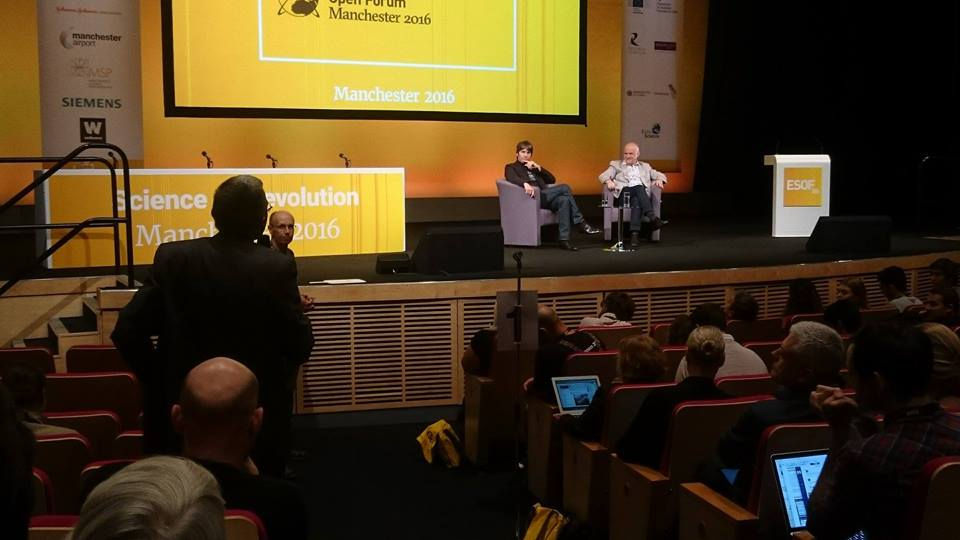In conversation with Brian Cox
- Jul 31, 2016
- 2 min read
Brian Cox is Professor of Particle Physics at the University of Manchester as well as The Royal Society Professor for Public Engagement in Science. Probably he is best known to general public for his documentary work on BBC. On Monday 25th July we had the opportunity at ESOF to follow his conversation with Professor Matthew Cobb, as well as being actively involved in the talk. The first topic that came into question was obviously astronomy. Cox was sharing his ideas about some main issues of unknowns in the cosmology like the flatness problem and the horizon problem. We briefly discussed the cosmic inflation and took a philosophycal note on how the expansion of the Universe has changed its nature in the past (i.e. at the end of the inflationary period), which actually raised the question about the possibility of a similar event in the future... After these high-minded but rather professional topics, Cobb directed the conversation towards everyday questions. First, the most under-represented groups at universities came up for discussion, including some talk on how the inspiration and curiosity seem to vanish during the secondary school-years. They also said it's a false belief that ethnic minorities are the most under-represented group at the universities: in reality, the least represented are young white men from the working class. Other questions addressed Cox's childhood and lifepath, as well as his special gift in being a charismatic science communicator. At that point someone from the audience pointed out that in general, by getting a sense of the speaker's personality, the presentation becomes much more convincing and unique at the same time. And it is indeed a key issue in this profession, since many tend to loose the features of his or her character under the pressure of media. Cox however managed to retain his charisma, which makes him so unique and his talks so appealing. Unfortunately the conversation lasted for only about an hour, thus we had to come to an end soon. For a closing remark I thought of sharing a quote of Cox's: "The three most important words in science are 'we don't know'.". It's worth to think about the meaning of it...






















Comments